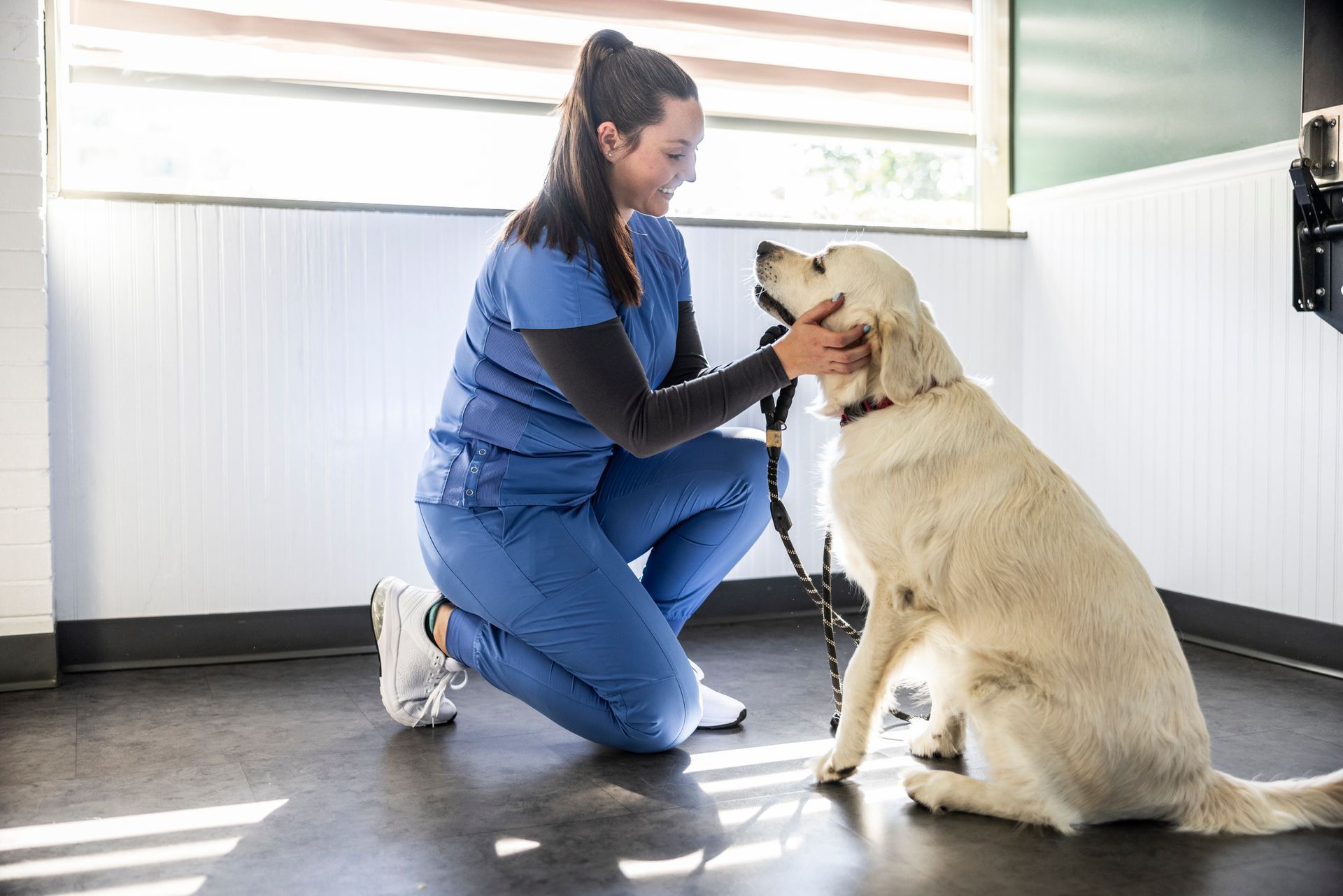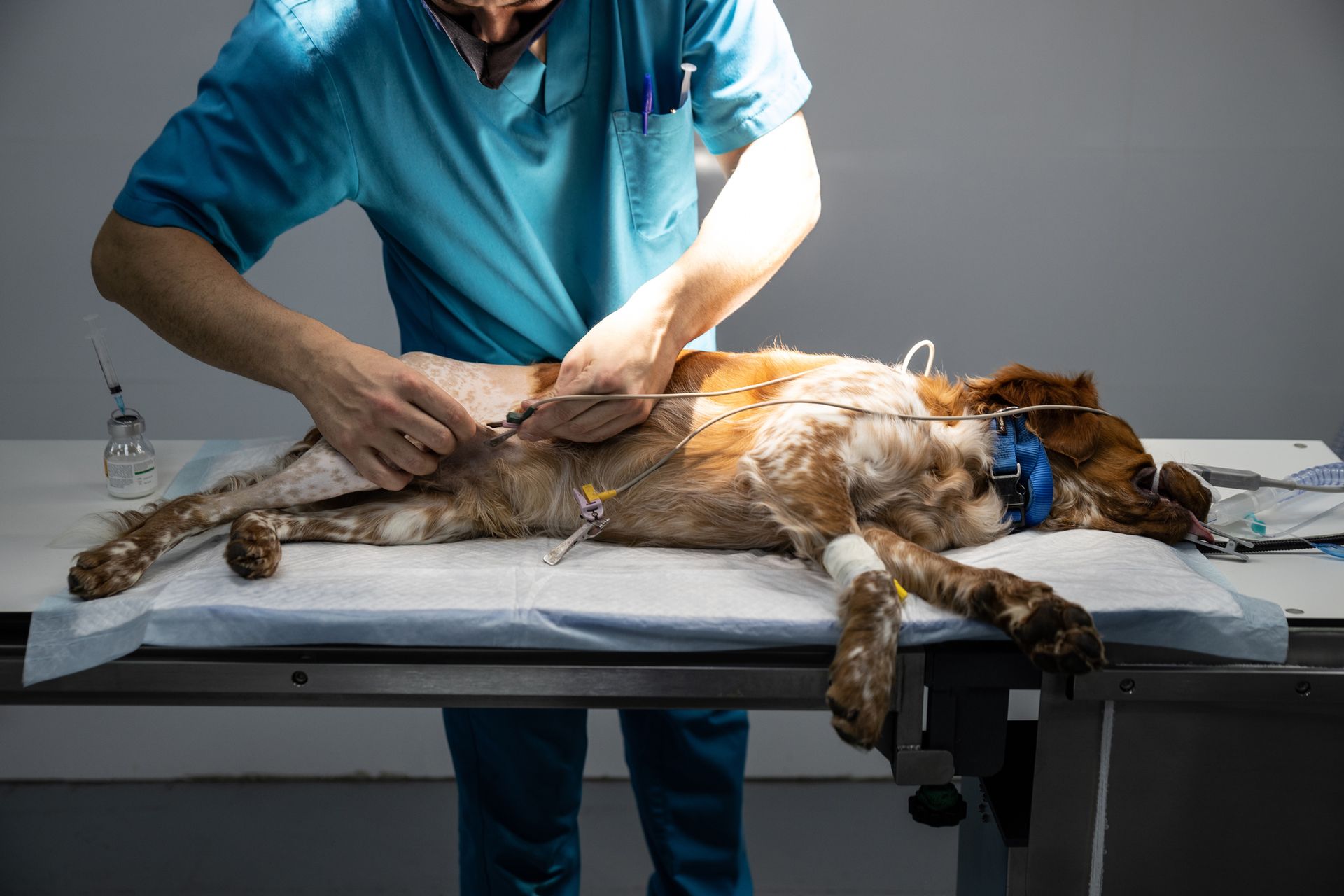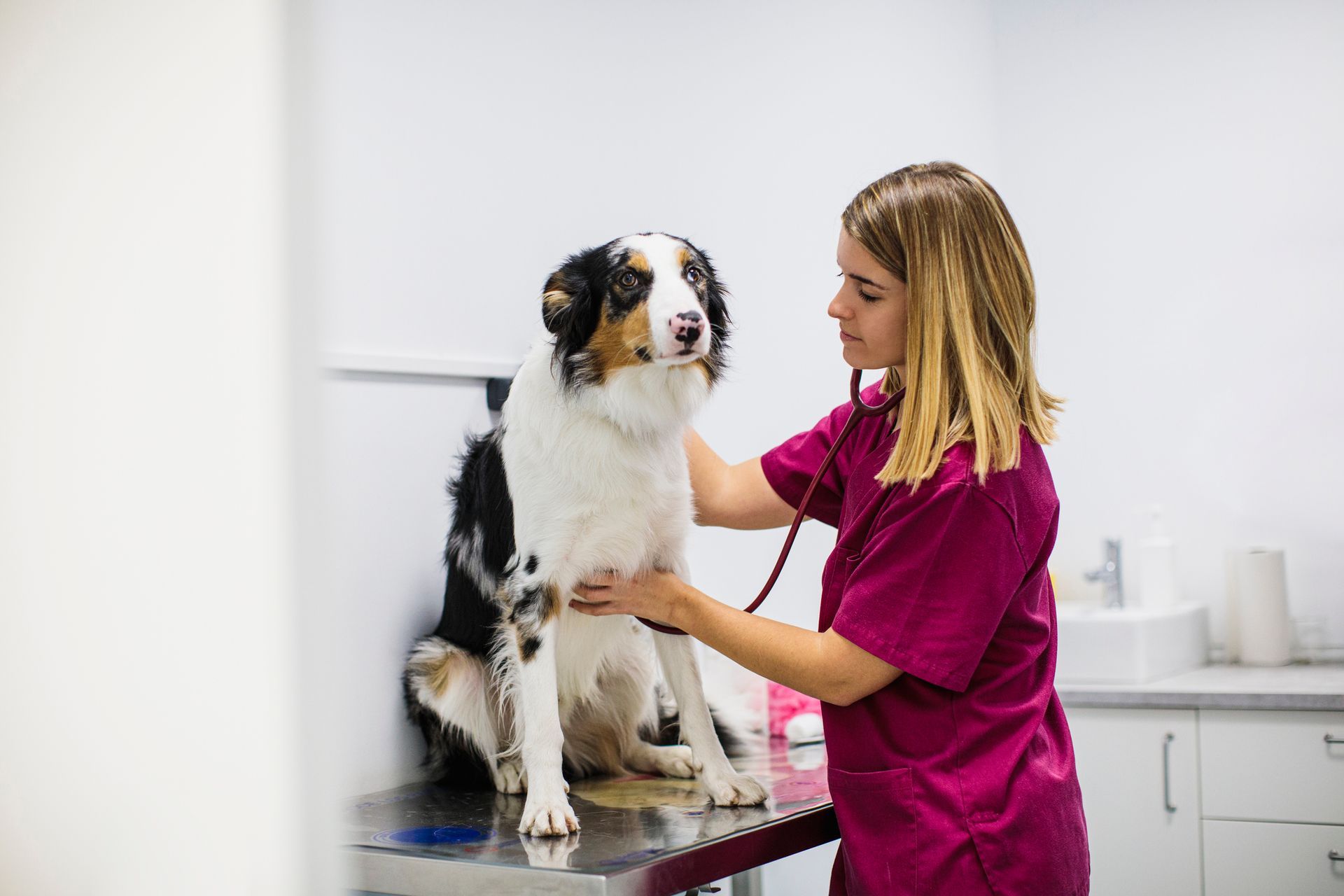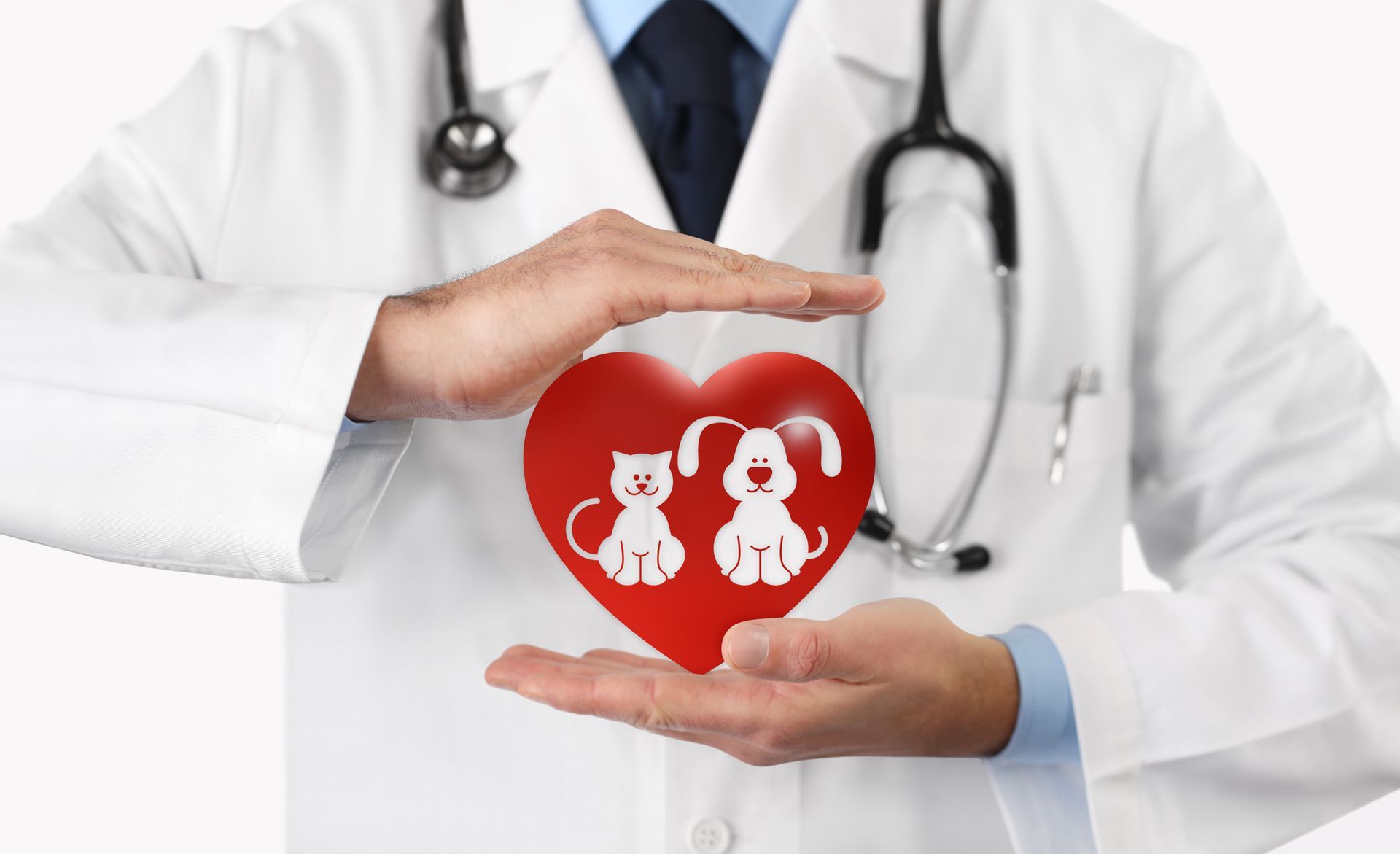Congestive Heart Failure in Cats
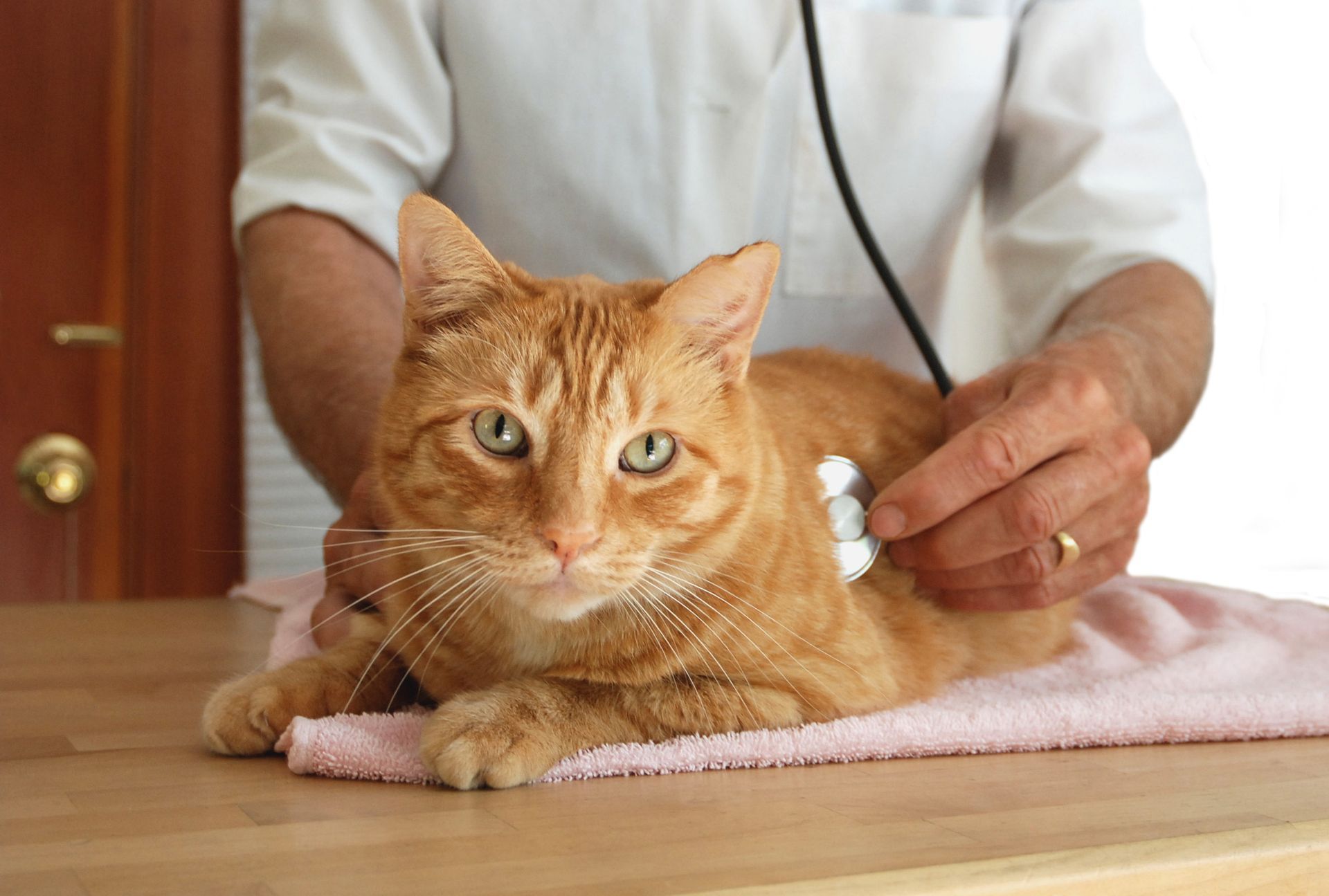
Many cats experience some sort of heart disease. A variety of underlying causes can damage the heart muscle, which may lead to a condition known as congestive heart failure. Although veterinarians can't reverse this heart damage, prompt treatment can help affected cats live longer, happier lives.
If you care for a cat, know some key facts about feline congestive heart failure, from its many possible causes and risk factors to the telltale symptoms and available treatment options. Let the following questions and answers guide you in your quest to help your beloved pet thrive.
Why Do Cats Develop Congestive Heart Failure?
Congestive heart failure gets its name from the way poor heart function causes fluid to settle in the lungs, causing congestion that impairs an animal's breathing. Hypertension, thyroid disease, and congenital heart muscle or heart valve abnormalities can cause this condition. However, the main cause involves cardiomyopathy.
In cardiomyopathy, the heart muscle enlarges and thickens to the point that it loses some of its pumping efficiency. This progressive loss of heart function allows fluids to pool in the abdomen or lungs. Genetics may play a role in the condition, with breeds such as Persians and Maine Coons at elevated risk for the disease.
What Symptoms Should Alert Cat Owners?
In its early stages, congestive heart failure may not produce obvious symptoms in cats. However, as the lungs collect fluid, a persistent, otherwise unexplained cough presents the condition's most recognizable trouble sign. Your cat may also display shortness of breath and lose its ability to tolerate normal amounts of exercise.
Congestive heart failure can produce other symptoms in cats as it progresses. Watch for signs such as lethargy or restlessness, hind leg weakness or paralysis, a swollen abdomen, vomiting, loss of interest in food, sleeping problems, and a rapid heartbeat. These symptoms should prompt you to seek veterinary attention.
How Do Veterinarians Address Congestive Heart Failure?
Veterinarians can confirm congestive heart failure by running a battery of diagnostic tests and scans. Your veterinarian may listen to your cat's heart, look at the heart through ultrasound scanning, and check the heart's electrical activity by administering an electrocardiogram. Blood analysis and X-rays can also prove helpful.
Treatment of feline congestive heart failure may partly depend on whether your cat suffers from an underlying condition that triggered the disease. For instance, if your cat has thyroid disease or high blood pressure, treating that condition may help tame congestive heart failure.
If your cat suffers from advanced congestive heart failure, it may need emergency measures to remove excess fluid and improve breathing. Your veterinarian may hospitalize your cat and administer diuretic drugs, oxygen therapy, or drugs to dissolve blood clots in the legs to stabilize its condition.
Although veterinarians can cure or reverse congestive heart failure in cats, medications can help the animals live with the condition. Your cat may need to take beta blockers, calcium-channel blockers, ACE inhibitors, and ongoing anticoagulants or diuretics to help keep symptoms under control and prevent further damage.
How Can Home Care Help Your Ailing Cat?
As a concerned owner, you can play an active role in helping your cat manage its congestive heart failure between veterinary visits. For example, you might want to stop feeding your pet ordinary cat food in favor of a specialized low-sodium diet. You may also need to keep your cat from drinking too much water.
A struggling heart will only experience more strain and damage under stressful conditions. Try to give your cat a calm, peaceful environment so it won't get overexcited. You may have to limit your feline friend's exposure to noisy children, other pets, and sudden changes in routine.
Congestive heart failure doesn't have to ruin your kitty's quality of life. The skilled team at South Seattle Veterinary Hospital can run the necessary diagnostic tests, determine the most effective treatment approach, and advise you on how to give your cat a healthy, supportive everyday lifestyle. Contact our clinic today.


